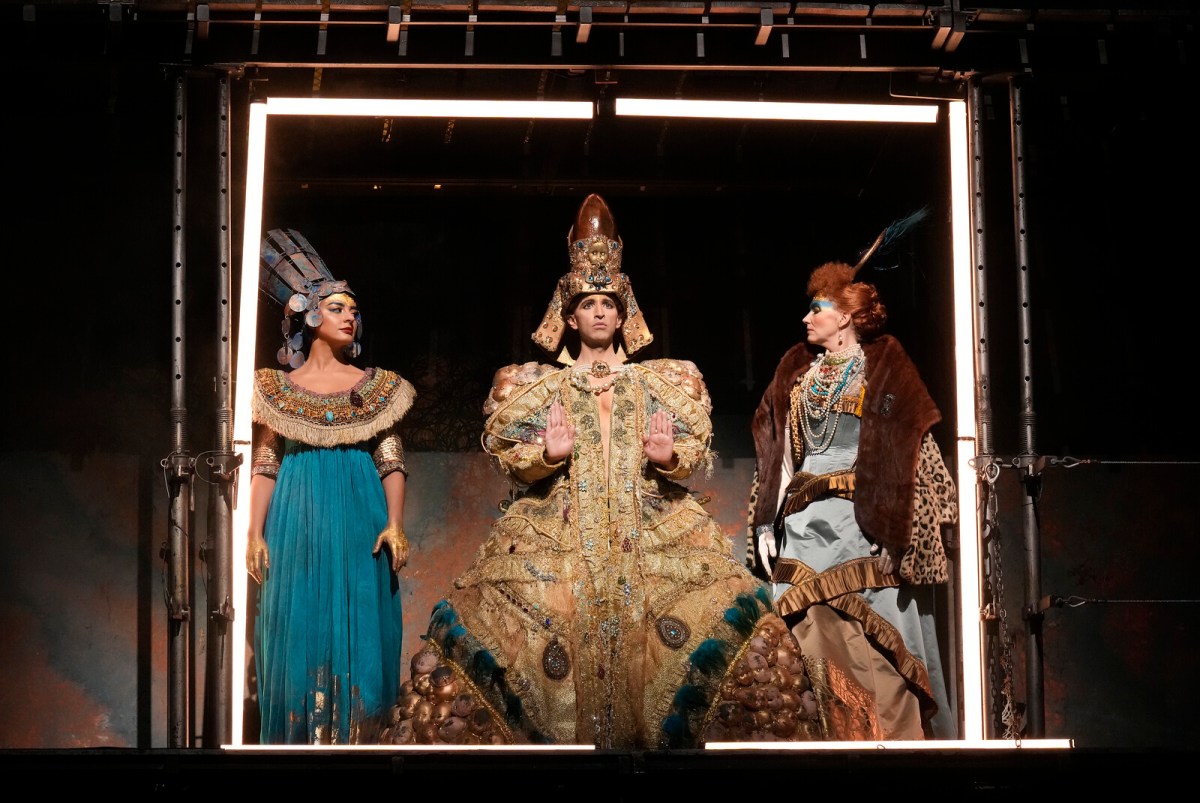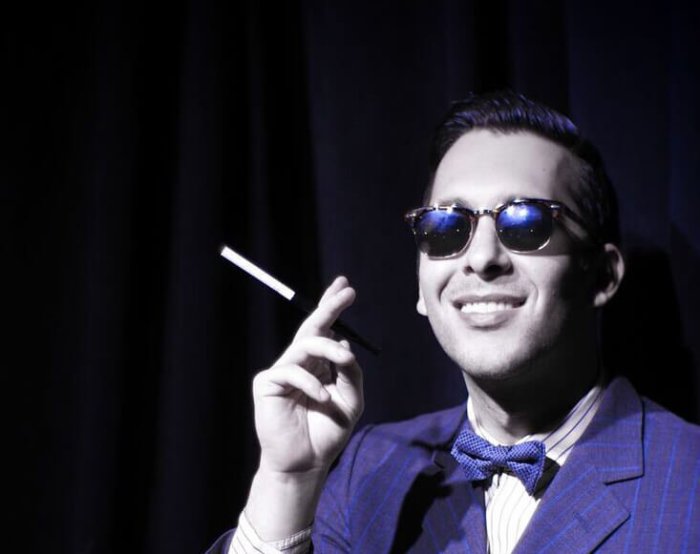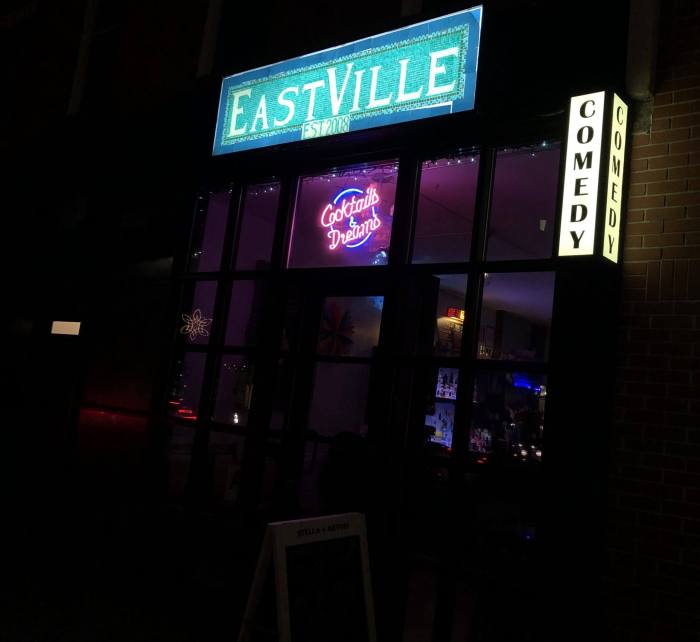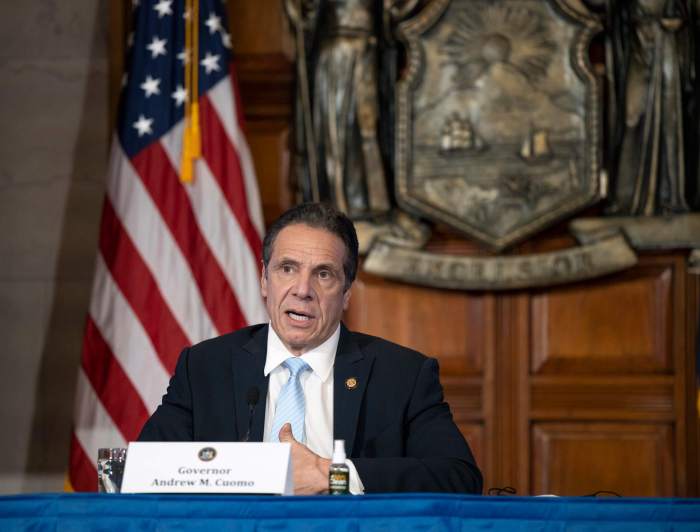The Metropolitan Opera got through its season with high credit, never missing a performance. The last month offered a particularly vibrant time, with several 20th and 21st Century operas running at once, drawing a notably younger and more diverse crowd. For anyone who thinks opera is too expensive, check out the Met’s extensive same-day rush and student rush policies. You can find yourself in terrific seats for $25!
It may have been the intense, sell-out success of 2019’s English National Opera-derived co-production of Philip Glass’ “Akhnaten” that convinced general director Peter Gelb that modern operas, excitingly done, represented a rewarding way forward for the company. Phelim McDermott’s spectacularly dynamic production, with glorious sets and costumes and Sean Gandini’s inspired choreography incorporating a team of expert jugglers, keeps the eye entranced and the spellbinding score’s potential longeurs at bay. I’m not sure it fully solves the work’s “third act problems” — the overlong, static scene with Akhnaten and Nefertiti’s daughters (some excellent voices here on May 25, including Lindsay Ohse, Chrystal E. Williams, and Annie Rosen) and the contrived, extremely dated-seeming scene involving a modern professor lecturing to his students (and us) about the pharaoh’s place in history and the archeological record. Back in 1984, this must have seemed, to Glass, a necessary break to afford the three leads — Akhnaten, Nefertiti and Akhnaten’s mother Queen Tye (here Anthony Roth Costanzo, Rihab Chaieb, and Dísella Lárusdóttir) before their phenomenal and moving final trio, channeling their spirits forward to the present.
Roth Costanzo — who stepped up his already eminent, inventive role in New York’s musical world and queer cultural life during the pandemic — has made this opera’s title role an iconic cornerstone of his career. This production depends on his amazing physical discipline and keen interpretive commitment. To my ear, his haunting vocalism sounded even more expansive than before. Mezzo Chaieb sang sonorously and blended well with Roth Constanzo without matching the fierce scenic and tonal impact of the Met’s original Nefertiti, J’Nai Bridges. Larusdottir, on the other hand, sounded truly spectacular, even better than the first time out. It’s high time that she be given further opportunities in roles more prominent than the Papagenas and Shadow Marnies.
Another out performer, Broadway-honed bass Zachary James, moved and declaimed with awesome impact as Akhnaten’s later father, Amenhotep III (doubling as that unneeded Professor). Akhnaten’s downfall — with the demise of official monotheism and the return to a more patriarchal, less gender-fluid era — is engineered by a trio of heavies. Tenor Aaron Blake dealt dazzlingly with the High Priest’s rigorous, high-flying part, joined by Will Liverman (General Horemheb) and Richard Bernstein (Nefertiti’s father Aye). The whole ensemble gave their all, and the violin-free orchestra glistened under the baton of Karen Kamensek. A thrilling evening.
Kamensek was one of five women to conduct at the Met this year, and more are on the way — a great development. Seeing a woman at the podium still brings automatic and understandable cheers, even after Jane Glover’s stodgy “Magic Flute” and the very uneven “Bohème” of Eun Sun Kim (lavishly praised in some quarters). But Kamensek’s work was revelatory, as was that of Susanna Mälkki leading “The Rake’s Progress” June 3 with delicacy and depth. Stravinsky’s neo-classicist and ironizing score, always an odd but charming fit with the libretto by lovers WH Auden and Chester Kallman, proved unusually moving in her reading.
Jonathan Miller’s 1997 production — typically all about the visual allusions to Giorgio de Chirico Edward Hopper, Damien Hirst, and others, leaves much to be desired in terms of movement. The crucial graveyard scene barely makes any impact. Yet, despite highly unfortunate pauses between scenes (why, with such skimpy sets?) this revival’s cast really took fire — save for Christian Van Horn’s handsome but verbally generalized Nick, all delivered in a steady mezzoforte — and made one care. As in Boston five years ago, stellar Mozart tenor Ben Bliss sang beautifully as the titular doomed plaything of fortune. As a deeply affecting Anne, Golda Schultz offered some of the season’s most ravishing singing. New to the company, rocketing mezzo Raehann Bryce-Davis had a whale of a time (and sounded terrific) as a very individual and sympathetic Baba. Eve Gigliotti’s enjoyably trashy Mother Goose and Tony Stevenson’s Sellem made every word clear.
Washington Concert Opera provides a service New York currently lacks: regularly scheduled performances of less commonly performed operas with star soloists. Founded in 1986 by gay conductor Stephen Crout, WCO opera has presented memorable concerts with many rising and future stars, among others Stephanie Blythe, Lawrence Brownlee, Michael Fabiano, Renée Fleming, and Nelly Miriciuou.
Australian-born conductor Antony Walker now leads the orchestra. Crout’s widower Peter Russell gives introductory lectures before the shows for those who want in-depth insights. And, I have to say, WCO concerts seem to attract a gayer clientele than any other classical events I attend in our nation’s capital. Its performances are usually Sunday night at 6 pm; when Amtrak restores its late evening service, it will be a possible day trip.
On May 22, Maestro Walker’s forces offered an excellent performance of Léo Delibes’ “Lakmé” — a naïvely orientalizing work in some ways. But its sympathies are with the Hindu heroine, and the libretto also critiques satirically the clueless British imperialist interlopers. It’s a lovely score last heard in NYC in 2006. There is much more to “Lakmé” musically than the famous Bell Song and even more famous Flower Duet “Viens, Mallika,” memorably used for lesbian love scenes in “The Hunger” and “I’ve Heard the Mermaids Singing.” It made a great vehicle for Erin Morley, who graced the Met this season in “Eurydice” and “Rigoletto.” She sang with lovely tone, spectacular accuracy, and feeling, blending nicely with Taylor Raven’s earthy-toned Mallika and Frédéric Antoun’s smoldering Gérald. Even if in somewhat uneven form, the Québecois tenor commands the style utterly and at his best moments delivered some arrestingly fine singing. The ever-reliable Alfred Walker and Juilliard-trained dynamo Theo Hoffman offered very strong work as Lakmé’s father and Gérald’s best buddy. In all, this was the strongest performance of a French opera I’ve heard in some time.



































